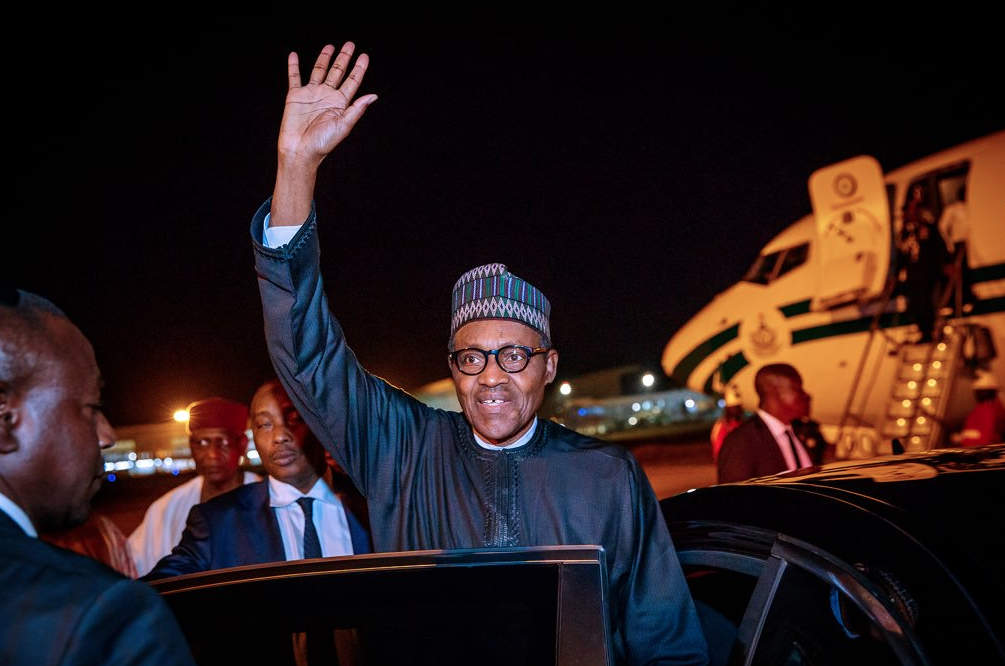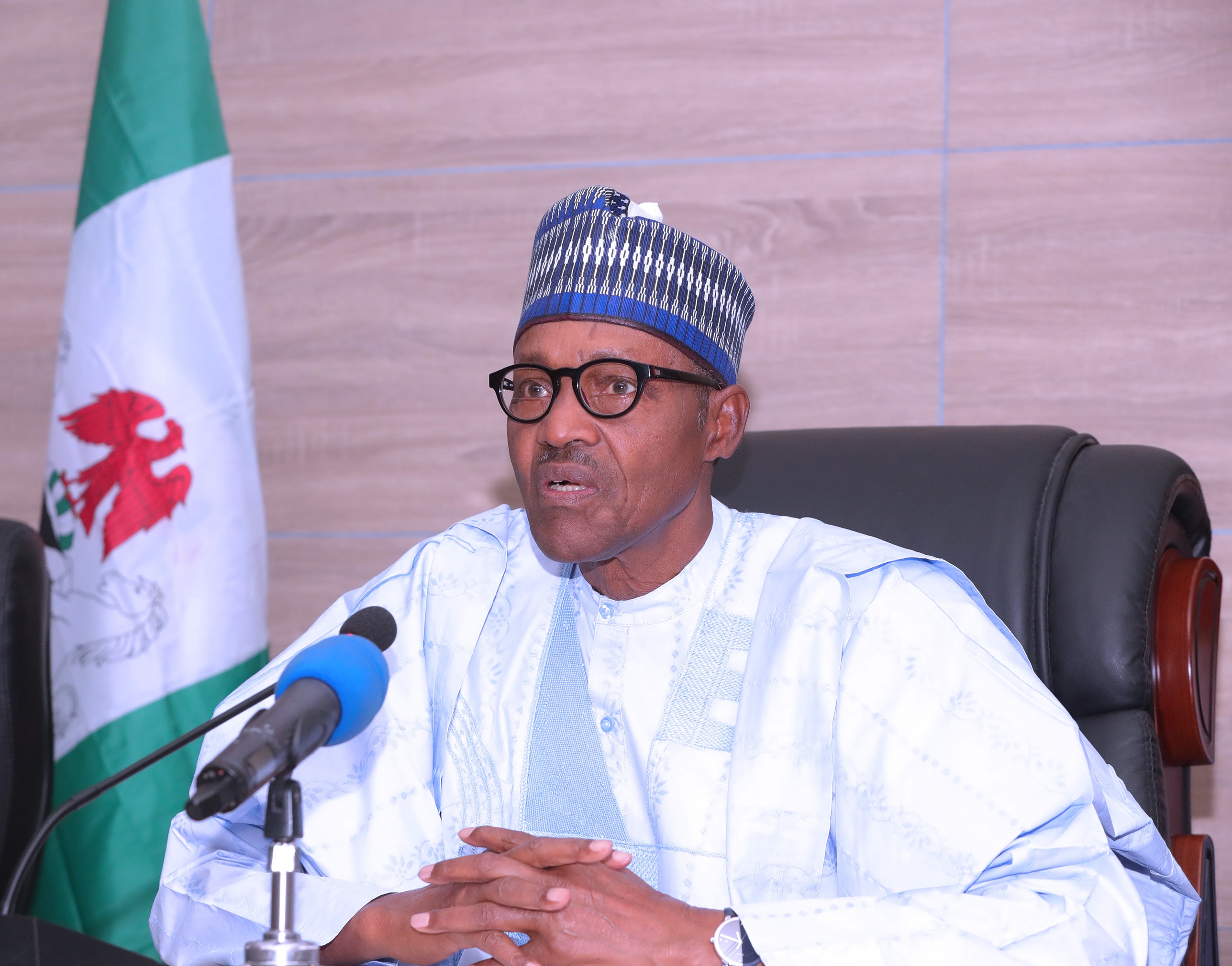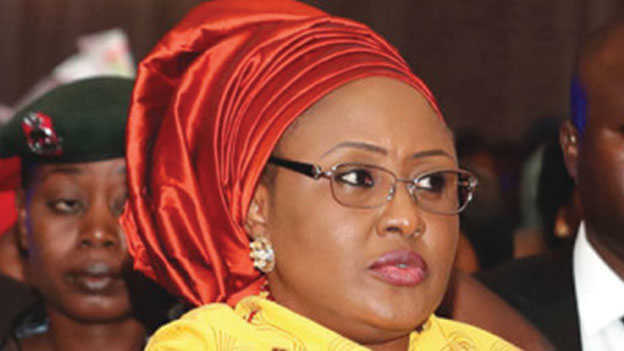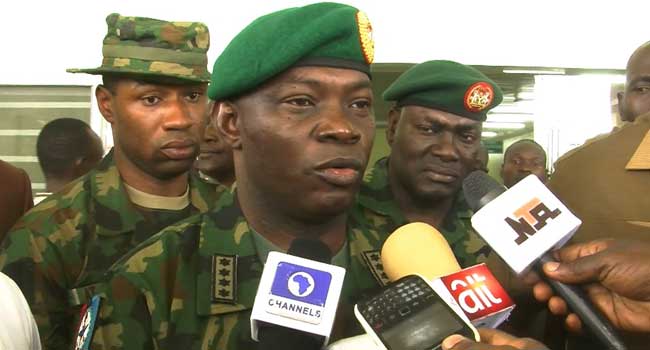I have this hunch that by the time President Muhammadu Buhari leaves office after his second term, there may either be no Nigeria as properly so called or the nagging questions of our existence would have led to the ultimate violent resolution of our identity and leadership crises. Two issues that cropped up during the week that just ended cemented this haunch of mine.
One was the establishment of the radio station by the Federal Government which is said to be principally devoted to Fulani herdsmen; the other being ex-President Olusegun Obasanjo’s antagonistic engagement of and with what he called the Fulanization of Nigeria and Africa by Boko Haram, as well as his activist pronouncements in recent time. The increase in Fulani herdsmen’s incursion into the South West and the ease with which hopelessness is seizing the land like a pestilence, that culminates in young men and women taking their own lives, are the morbid icing on this cake of sorrow. Already, the Katsina State government has literally cancelled the May 29 celebration because bandits have almost taken over the President’s state.
At the Anglican Synod of the Church of Nigeria (Anglican Communion) Oleh, Delta State last weekend, Obasanjo shouted a decibel higher than his earlier trenchant opposition to the Buhari government. According to him, if the Federal Government appeased Miyetti Allah with N100 million as is being circulated, it should appease other ethnic groups in the country with same amount of money, after all, the presidency said there was no difference between these notorious herders and Afenifere, as well as Ohanaeze Ndigbo.
Buhari’s media machine, spearheaded by that inveterate propagandist, Minister of Information Lai Mohammed, launched into an uncouth diatribe against the former president, accusing him of “spreading divisive agenda at the twilight of his life.” Some other veterans of the Nigerian civil war, who know the import of this war-without-warriors that is being fought on the soil of Nigeria, have spoken in support of Obasanjo. Former governor of the defunct Western State, Maj.-Gen. David Jemibewon, (rtd) and Col. Theophilus Bamigboye (rtd), former Military Administrator of Bauchi and Osun states, literally told Muhammed and his boss to shut their traps.
Advertisement
Perhaps the most foreboding support of Obasanjo was the one that came from the unusual flank of Nobel Laureate, Prof Wole Soyinka. “We should be careful not to be too dismissive over the matter. The Federal Government is leaving aside the substance, which is the high level of kidnapping, youth suicide and terrorism in the country. I support unity in Africa but we need to particularize the area of unity we seek. Even Boko Haram also tries to unify everybody.
“When you talk about Uthman Dan Fodio, what comes to people’s mind is threat to dip the Koran into the Atlantic Ocean. There are many people in this controversy. My feeling is that the response of Minister of Information shows that they are leaving behind the substance, and worried about the language. Obasanjo was calling for a meeting to tackle some of the serious issues in the country, including youth suicide. He said there are immediate needs to sit down and discuss these issues. And I am saying there are more immediate needs to do that,” he said.
If you read through the lines of the recent statements by Obasanjo, they will clearly pass as ones made at moment of purgatory or penance. Since his enlistment into the Nigerian Army in 1958, Obasanjo has been a serious advocate and devotee of the Nigerian god of nationalism, defending the interest of the North when it conflicted with the South. It was not surprising that when his friend, Murtala Muhammed, was assassinated, the Northern military oligarchs, represented by Generals Domkat Bali, Theophilus Danjuma and others, felt very comfortable with him as the Head of State. Perhaps as a payback, Obasanjo felt no qualms in demonizing his kinsman, Obafemi Awolowo and handing over power to the scions of the north who were magnanimous enough to hand over power to him “on a platter” in 1976. In 1999 when it was obvious that if the North did not cede power to the South, there would be a massive revolt, Obasanjo was still the most trusted ally the North felt most comfortable to invest power with. And for eight years, he did not rock their boat, pandering to the whims of the north at critical intersections. The truth is, seldom would the South or even the West claim, in the real sense of it, that it had a presidency of its own in the Obasanjo presidency.
Advertisement
One word Obasanjo never wanted to hear was Awolowo’s preachment that you had to have an ethnic identity before you have a national identity. In other words, you cannot just be a Nigerian from the blues; you have to first be a Yoruba, a Hausa or Igbo before the latter Nigerian identity.
Now, apology to Chief Kingsley Mbadiwe, push is coming to shove and the guest who overstayed his welcome, according to the Yoruba wise-saying, is being shown the last cut of the yam tuber as the only meal left at home. It is time for the guest to return to his father’s house. And Obasanjo is returning to the home he had always desecrated. When Awolowo sought to fortify his people and their development, Obasanjo spearheaded attacks on him as an ethnicist. Now, in his very before, as they say, Obasanjo can see children of those he relentlessly fought their battles, with the connivance of our own children sired definitely not by our father – I forgot now what they call such children! – raining abuses on him for standing by the truth of our ancestry.
When Obasanjo stood by and abetted Murtala Muhammed, a known hater of every other tribe aside his own Hausa ancestry, who unconscionably massacred Igbo in their hundreds in Asaba, including Maryam Babangida’s father, he was acting within the confines of war. Now, a Muhammed incarnate, Muhammadu Buhari, is prosecuting the agenda of his ethnic Fulani people and an Obasanjo, who had always been anefulefu (traitor) of the Southern agenda, is riled. This same Buhari had earlier before he became president attacked the Goodluck Jonathan government for being unfair to the North in its rout of the dreaded Boko Haram. Nobody said a word. Now, Fulani, a very tiny fraction of Nigeria’s over 350 ethnic groups, is going to have a radio of its own, financed by the collective Nigerian purse and Obasanjo is raising hell.
Miyetti Allah and its herder compatriots were killing Nigerians in their hundreds and Buhari was concocting all manner of theories to legitimize their onslaughts; nobody spoke. Now, same poeople are on our lands, kidnapping and killing us and demanding N100 billion of our money to stop attacking us and the whole country is crying blue murder. Where was Obasanjo and the likes when all these were happening?
Advertisement
In all these, I see a resolution of our national crises coming soon, faster than we imagined. We may just start counting who the last Nigerian President will be. Like the holy writ says, when you see the fig tree’s branch become tender, with its branches sprout and start putting out leaves, you should know that summer is near. In the same vein, I think the end has surely come. Since I was old enough to access public comments of eminent Nigerians, Soyinka and Obasanjo had never come to agreement over any issue, no matter how nationalistic or developmental the issue may be. Over this issue of the notorious blood-baying Fulani herders and the unceasing violence and killings under the Buhari government which have become so scary that we have to seek travel directory to move from any point to the other, even in the erstwhile tranquil West, the two kinsmen are in amity. Let us look towards the dark firmament – the resolution we seek is nigh.
Your Excellency, have you gone to the Ipebi?
In about 80 hours from now, the four-yearly ritual of swearing in men into sacred office of governor of Nigerian states will commence. Like in all rituals, regard would be had to precedents or what Yoruba callisese. As the oath taking progresses, the Chief Judge is decked in his ceremonials, reciting some poetic-sounding sentences, expected to be joined in a refrain by the excited new occupant of the stool. If you have ever been to one, in form and content, the oath-taking reminds you of the propitiations made in traditional Yoruba ancient Ogun shrine. A beheaded goat is firmly held by the Chief Priest, blood dripping from the dismembered head of the hapless animal as the inductee excitedly observes the regimented process. The Chief Priest then recites some ancient incantations which the inductee choruses after him. In a short while, the process is completed, shouts of excitement rend the air. Sworn abidance by the codes is assured and celebration follows.
Advertisement
On May 29, a regurgitation of this Ogun groove process will take place in many Nigerian state capitals. Unlike the latter however where attendance is restricted to a clique of worshippers, millions of people will troop out in their Sunday best to witness this exercise. The pomp and ceremony that attend it can be likened to the yearly masquerade festival the Yoruba call the Odun Egun. Before those jealous religions of Islam and Christianity divested adherents and communities as a whole of this yearly celebration, Odun Egun was like a saturnalia that every community looked forward to.
Sorry, I digressed. On May 29, there will be intense competitions to imprison the hearts and minds of the new governors, literally and metaphorically. Hundreds who crave appointments or contracts in the government that is just coming into being will muscle one another for their attention. The celebratory atmosphere will be reminiscent of the lowering of the Union Jack. People are already excited at the imminent departure of an immanent tormentor, a Lawrence Anini who, for four or eight years, stole their wealth blind but, in most instances, unbeknown to them, they are welcoming the arrival of a greater tormentor-in-chief and Ali Baba. From the Nigerian experience in the last 20 years of this democratic practice, it is obvious that, save for its frills, oath-taking and merriment, on a four yearly basis, Nigerians merely exchange some colonizer for another. So why is it that, so soon thereafter, the excitement, the expectations, the invested hopes, the projections, the lustering promises made to us at campaign podia, explode in our faces like balloons? And why is it that, in spite of the periodic explosions and deliberate stabbing of our hearts, our incurable optimism still takes us to the swearing-in venue every four years, only for us to repeat this unpleasant ritual in the next four years?
Advertisement
Permit me this short spell of immodesty: having closely observed two governors pre, during and post-governorship since 2003, I know what goes wrong between May 29 and the day after; the transformation of the pleasant, ideas-filled, development-oriented and passionate political leader pre-office into a behemoth, roundly criticized and generally unappreciated leader at point of exit. It is the brass-tacks of this sudden change that I intend to discuss today as a sequel to the one I did last week which concentrated majorly on the fate that awaits governors who are statutorily being bundled out of office in the next few hours. It is hoped to serve as a lesson to the next occupants of this sacred office.
One very key process which a holder of an office of this magnitude needs to undergo is what I call the humbling process. The governor-to-be needs to encounter the office he is about coming into mentally, shred it into ample sizes in his mind and develop a handy mental prospectus which he will carry about with him in the next four years. What do I mean? Between the day he is proclaimed governor by the Independent National Electoral Commission (INEC) and the morning of May 29 when he will undergo that ritual of swearing in, he needs to confront the office, download it and draw a mental graph of how he wants to navigate its nebulous geography. If he makes the mistake of leaving this task till when he eventually occupies the office on May 29, he will wake up lost and may not be able to keep pace with the flowing river of the office he is coming into.
Advertisement
Apparently aware of the importance of this humbling process, Yoruba traditional society makes its princes nominated as kings to go through it. After the rigorous exercise of selection by either the oracle or kingmakers, or even both, the prospective king will undergo a usually three months period of seclusion in a sacred place called the Ipebi. It is a place where ancient rituals take place and which a prospective Yoruba traditional ruler must undergo. It is a rigorous process of self-denial, restrictions and seclusion, including sometimes sleeping on a bare mat. Apart from the meticulous training in the custom, tradition and practices of his people at the Ipebi, this period is for the prospective king a moment of spiritual communing with ancestors, both recent and ancient, who had earlier occupied that stool and are expected to metaphysically impact in him the paths they trod to success and to ruins. He will learn the history of the town, the requirements of Obaship and the etiquettes of the stool. Some Yoruba Oba-to-be are taken through theOsugbo shrine (chamber of highest spiritual authority) and there is a rumour that they are made to eat the heart of their predecessor therein. In totality, the Ipebi is the place where the king-to-be encounters the office, is taught about its dynamics and how to plot the graph of his kingship. United States of America has its ownIpebi in the Ivy League schools that virtually all American Presidents attend and the Camp David they periodically retreat to for spiritual retooling.
Any of the heirs apparent to the governorship stool to be sworn into office on Wednesday who hasn’t encountered the office by now or hasn’t gone into his own personal Ipebi will fail. Going into your personalIpebi is resolving that you are going into the sacred office to leave eternal footprints. If your resolve on the office is that your time has come to amass wealth and deal with your enemies, you have failed ab initio. This is because, you will soon find out that the office of the governor is one of the most vain top offices in the land. The statutes creating it, the powers ascribed to it are such that they make a god of man. Adulators and fawners will make you look like a superhuman. You will soon find out that that that Government House is one huge prison and you are like the captive inside the dark cave of the Plato allegory. Governors are seldom told the scorching truth that singes their flesh. The new governor is one to remind himself that his shit smells like the vagabond on the streets and that he will someday be, like every other man, a recipe for maggots who have no respect for human constituted authority.
Advertisement
If, in the process of his personal Ipebi, that prospective prisoner from May 29 does not acquire a steely resolve on what to do with the office he is coming into, the office will castrate and railroad him. Those he will relate with in the next four years are vultures, vermin, bloodsuckers and characters who have no blood flowing in their veins. Appointees, advisers, contractors, politicians, civil servants and the like whom the governor will encounter won’t do anything for the love of country/state but their acutely insatiable palates. They will also confront a migraine-inducing, difficult-to-assimilate reality, to wit that the people they purport to come to government to liberate – the common man on the streets – actually constitute 75 per cent of the problem of why their state is backward. The governors-to-be will, overall, confront Nigeria in its nakedness as one huge pool of sewers where ancient maggots and blood-baying crocodiles have festered for ages. You can either be a trail blazer, the unconventional revolutionary or what legal practitioners call the participis criminis (participant in the crime). The choice is yours.
Ancillary to the above is the importance and consequence of the first 100 days in office. You have to forge the character of your government within these days. Americans who formulate the concept are no fools. Within this period, the people are critically watching. Inspire others, especially those who will work with you; repose confidence in them; show honest and purposeful leadership; exude commitment and passion; communicate the office as much as possible; be creative with power, empathize with the suffering of the people and don’t set out wanting to come back for a second time. Most fundamentally, be against-method. If you want to do it like others before you did it, you have failed from the start. I can assure you that if you don’t go to the Ipebi, Your Excellency-to-be, in four years’ time, in you we will mourn yet another great opportunity missed and a man who yet again lost the opportunity to make the difference.
An evening with Ayinla Omowura’s lead drummer
I was in Abeokuta, Ogun State on Friday in pursuit of a research work I am undertaking preparatory to Ayinla Waidi, a.k.a. Omowura, the Eegunmogaji of Egbaland’s 40th remembrance next year. I interviewed 90-something years old Baba Adewole Oniluola, lead drummer of that Yoruba Apala musical ensemble, led by late Omowura, in his Keesi area home. I saw Omowura’s Itoko house being renovated by the Ibikunle Amosun government. In front of that house is Omowura’s final resting place, his grave, decorated with white stones and barricaded with blue painted metals.
For over one hour, I went through, with Oniluola, the journey of the formation of the band; how, on their first outing to Ipokia, they were stranded, as the ceremony they were invited to had taken place the day before; how Solomon Adeola and other Egba sons resolved the rift between the duo in the late 1970s and the real translation of many of the drum-talking of Oniluola. I downloaded the real persona of Omowura in that encounter. For instance, the e wo man yi to so pe mo gbe’wure (look at this man who alleged I stole goats),Oniluola said was wrong, that what he actually drummed was e wo man yi, bo se n f’apa jana (look at this grumbling man). I asked him what gave birth to Omowura, in the middle of a song, suddenly bursting intoAlao Adewole, legal legal, ka se suru fun’ra eni, were were laye nfe (Adewole, please take it easy, you are drumming off key!). I asked Baba many uncomfortable questions like, “Baba, se eyin na n mu’gbo bi Omowura?” (Baba, do/did you also smoke cannabis like Omowura?); “Weren’t you the one, during the tiff between you, that Omowura called at’ohunrinwa (accursed immigrant) that one saw in Challenge (Ibadan) and Mushin carrying bag like an itinerant drug seller?” Oniluola’s replies were interesting. At some point when he was describing the corpse of Omowura he saw immediately the Eegunmogaji was murdered by his friend and Manager, Fatai Baiyewu, blood on his remains, Oniluola wept like a baby.
Fans and lovers of Omowura, you will be shocked at the visible poverty of a man you enjoy his talking drum in Omowura’s songs and the kind of house he lives in. As I made to leave, Oniluola left me with a teaser, “Tell Nigerians that Iku o d’ojo (death doesn’t give a date of its strike). Nigerians love celebrating the dead more than the living. Let them come to my rescue now, not mourning me as a great drummer when I am gone.” Let us come to the assistance of Alao On’iyaom’ebi, please.
Add a comment







